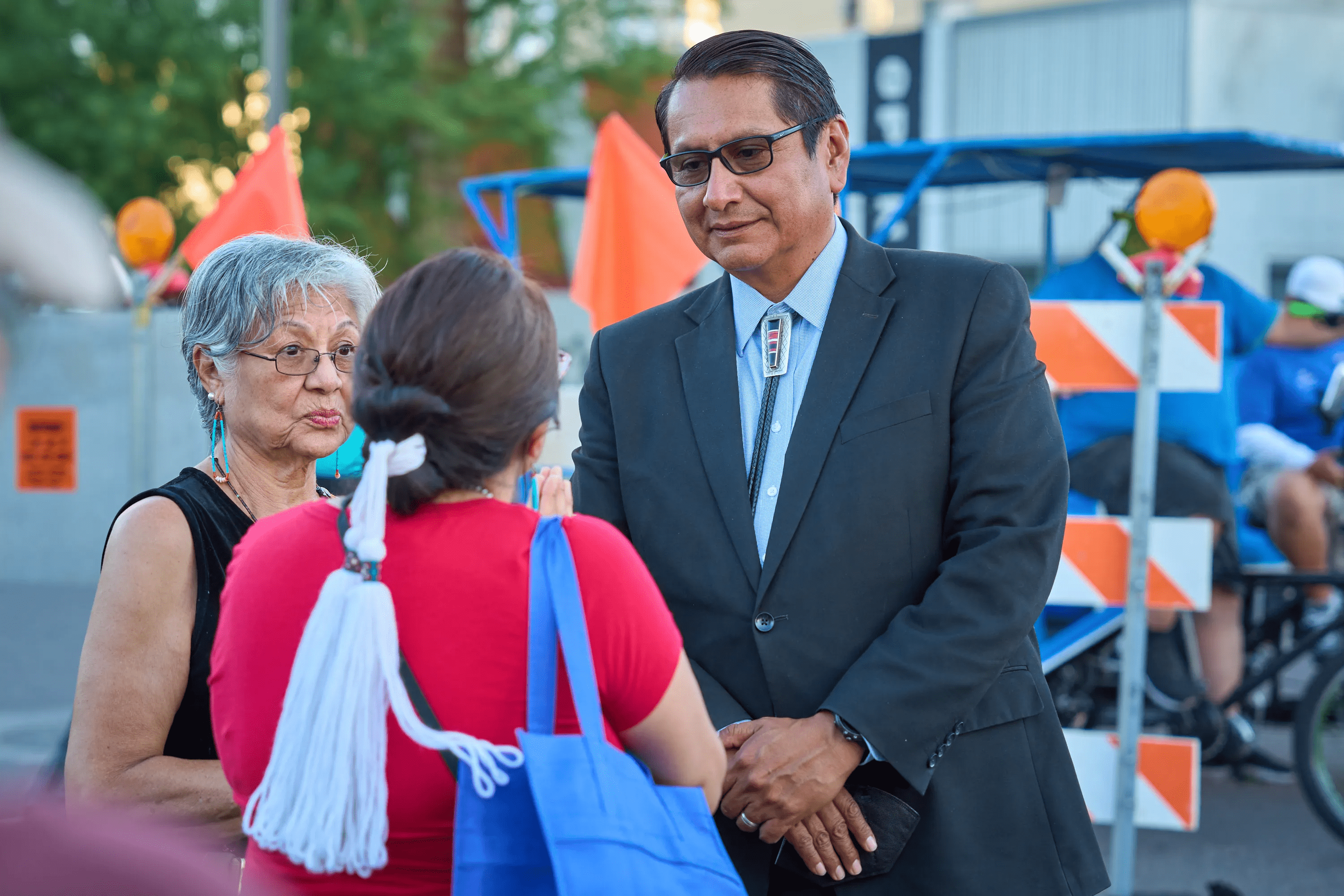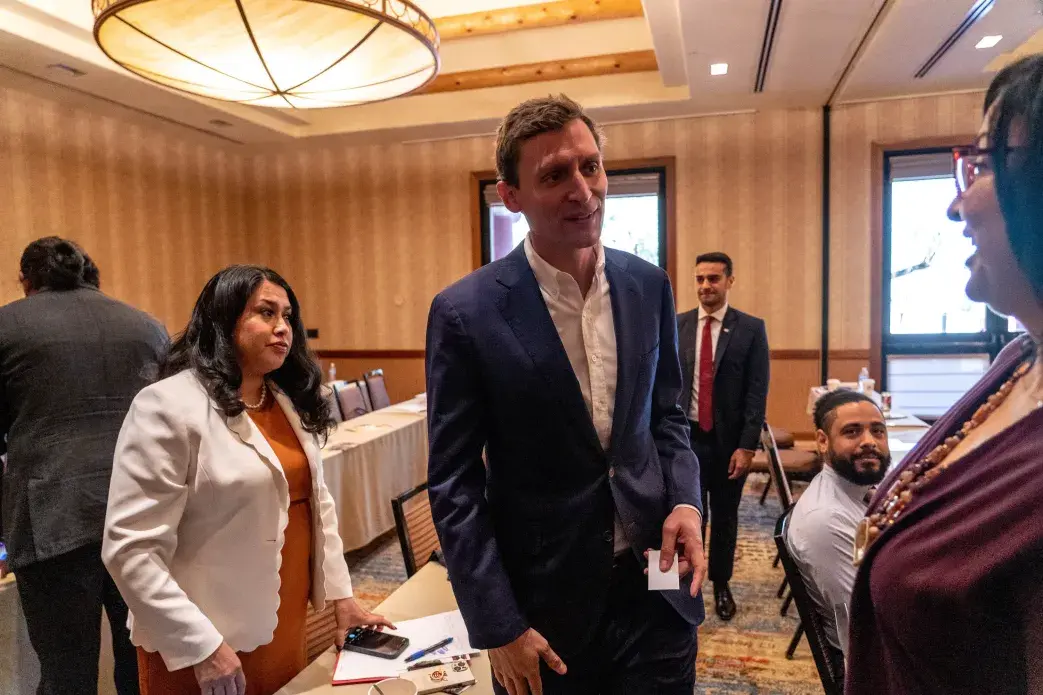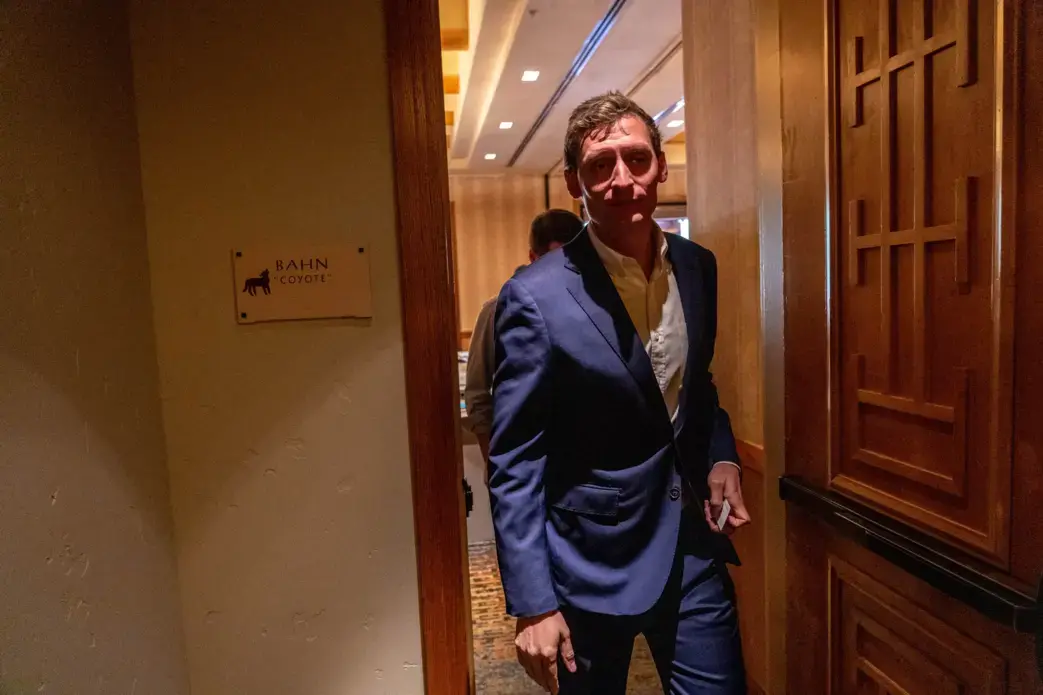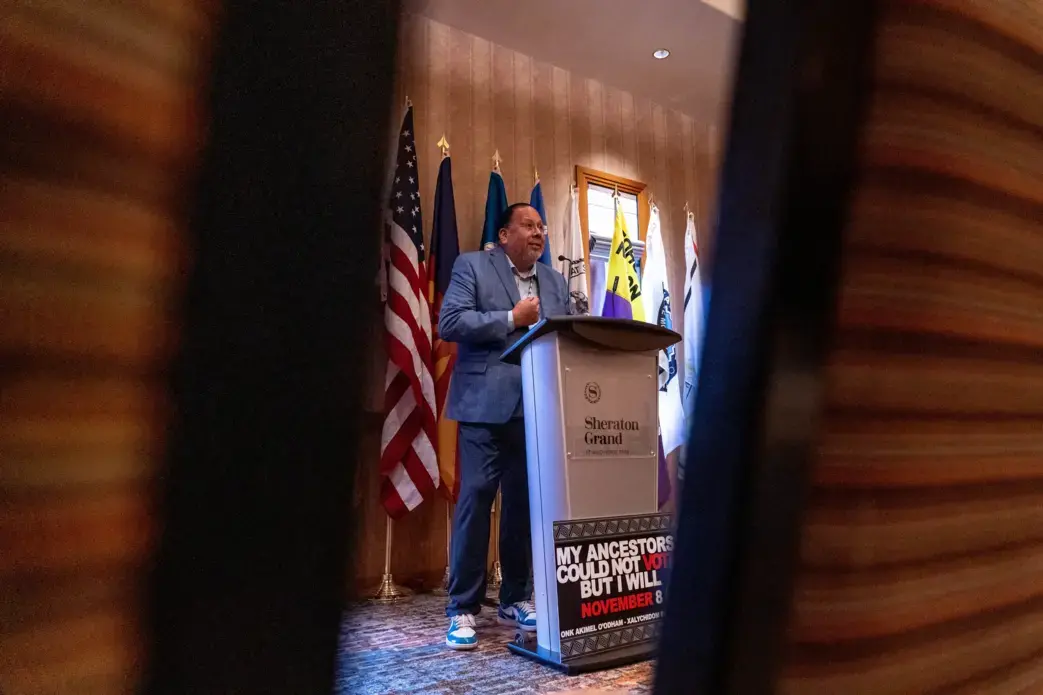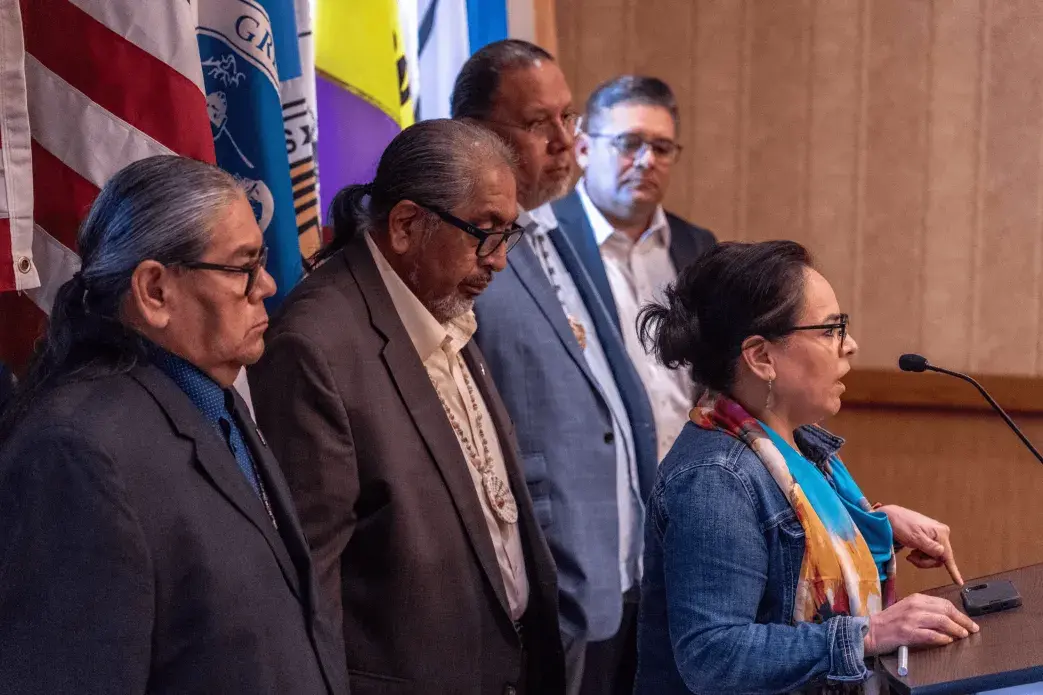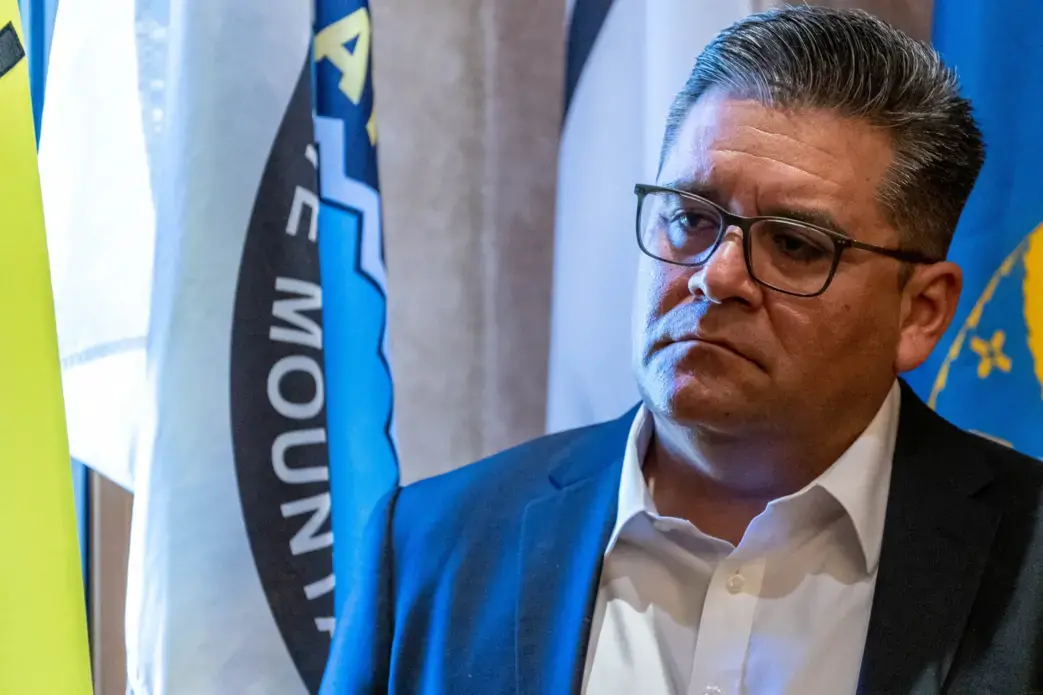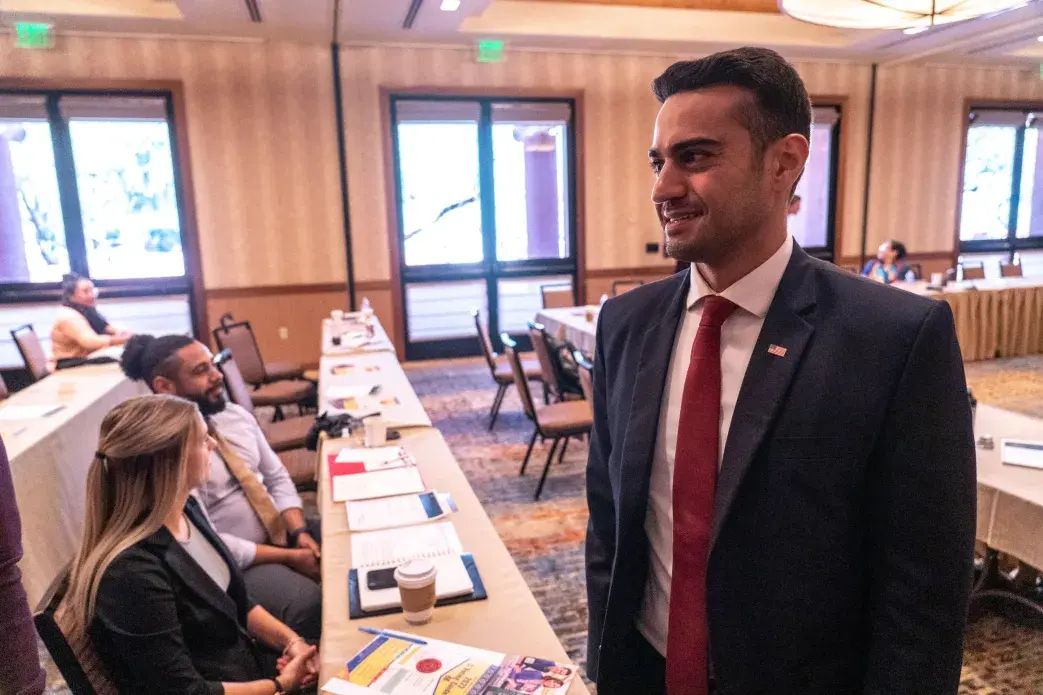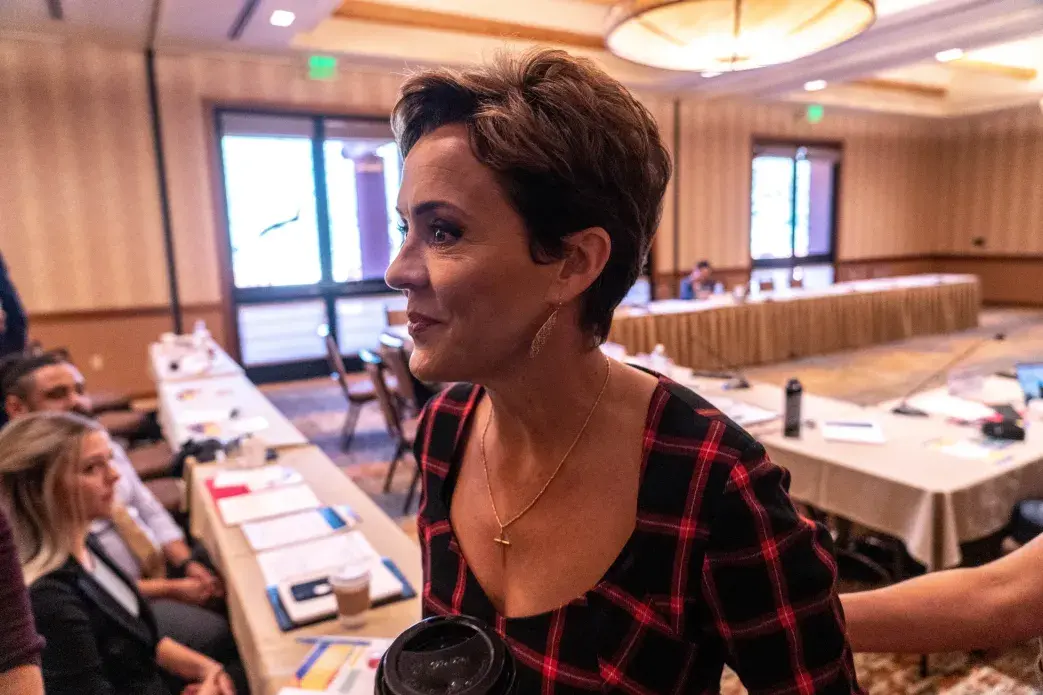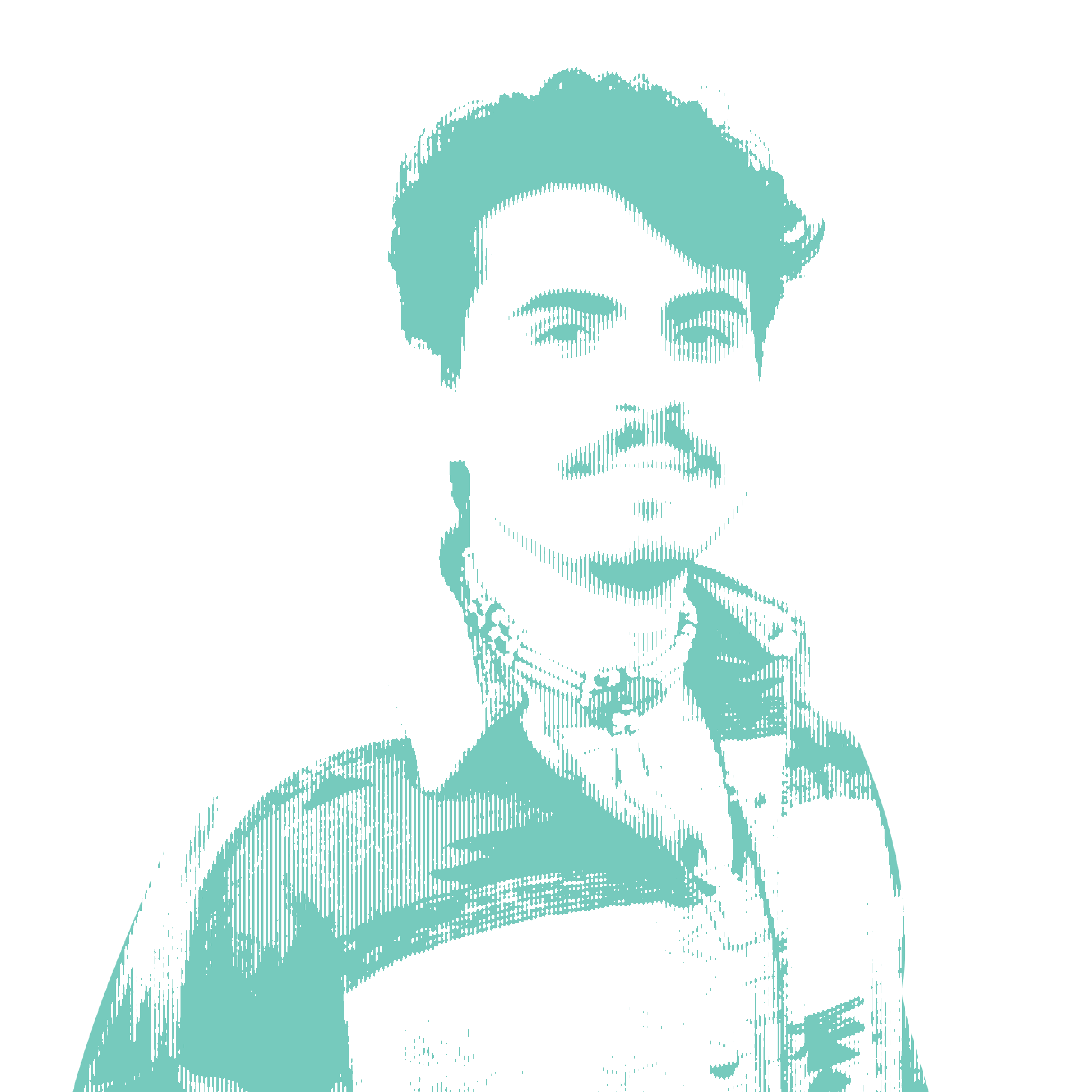Arizona tribal leaders asked some hard questions of three GOP candidates for statewide office Thursday and while the candidates were respectful, they stuck by their campaign stances, which at least one tribal leader said amounted to "lip service."
Kari Lake, who's running for governor, Senate candidate Blake Masters and Abraham Hamadeh, the GOP candidate for attorney general, talked about their stances on border issues, abortion and voting rights during a meeting of the Inter Tribal Association of Arizona at the Wild Horse Pass resort in the Gila River Indian Community south of Phoenix.
Tohono O'odham Chairman Ned Norris said he was concerned about the cultural and ecological damage to ancestral O'odham territory caused by the Trump-era border wall.
"We've been dealing with the impacts of invasions for more than 500 years," he said.
Norris likened the damage to a bulldozer blading its way through Arlington National Cemetery. "The construction is destroying our ancestral lands," he said. He's also worried about access to tribal services for the enrolled members of the 17 O'odham communities south of the U.S.-Mexico border.
Masters acknowledged that the national border was drawn without the tribe's authority or even consultation. But he said, he supports the border wall and pledged dialogue with the tribes to keep the communities from being bisected.
Lake pledged that she would work to complete the last 27 miles of the wall project and reiterated her stance that drug cartels are being supplied fentanyl by Communist China in an attempt to destabilize the country.
"I don't think we should have one more invasion," Lake said. "Fentanyl is killing people all over the state. It's a crisis."
Hamadeh said his job is to protect Arizona citizens.
"Illegals are destroying your land," he said. "They have no respect for your sovereignty or ours."
Leaders ask about voting rights, access
Norris and other tribal leaders pushed for the candidates' stance on voting access for tribal members, including how O'odham and other tribal members who live in remote communities with no physical addresses can register or vote without being harassed or forced to use a provisional ballot.
"Will you ensure access?" he asked.
Pascua Yaqui Councilwoman Herminia Frias also asked about voting access, noting that that during the 2020 election, their early voting site was yanked by Pima County for no reason. The tribe finally got the site restored after a new county recorder took office.
Native Americans in Arizona did not get the right to vote until 1948, nearly 25 years after being made U.S. citizens.
"When our water was stolen 150 years ago, we didn't have the right to vote," Lewis said.
Lake sidestepped the question about ensuring Native peoples' access to casting their ballots, saying only that she would work to ensure that every voter would know their vote counted.
Masters and Lake both pledged to work with tribes to address the Southwest's worst drought in 1,200 years. Masters said tribes should have the right to "sell" their water if they wished. Several tribes lease part of their water allocations and the Colorado River Indian Tribes are seeking congressional approval to lease part of their river allocation.
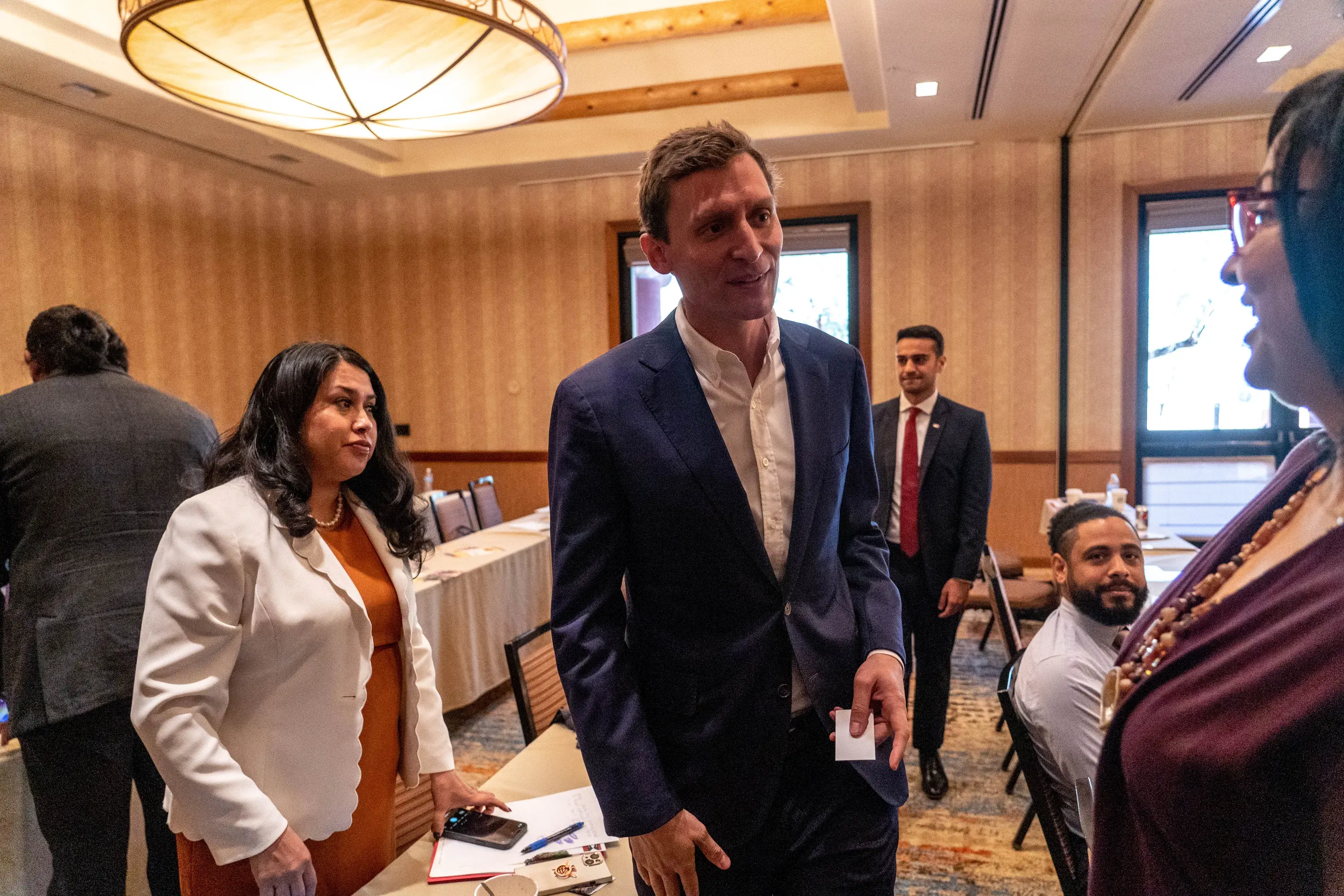
Hopi Tribal Chairman Timothy Nuvangyaoma asked the candidates about their position on abortion and women's health care.
"The corn is our mother," Nuvangyaoma said. "The discourse about abortion is concerning to us," adding that he believes it impacts women's health care.
Lake, Masters and Hamadeh all repeated their stances on abortion.
"I'm going to save as many babies as I can," Lake said, but added that women's health care is also important. Masters, who before the primary opposed all abortion, restated his more recent position that abortion should be restricted.
Nuvangyaoma also pressed Lake about a recent tweet posted by an aide that he said was unacceptable to tribes.
"I don't think you realize the full gravity of that tweet," he said.
Lake said she has many young people working on her campaign and that "they do stupid things."
"I can't control everything they do, but I came down on him very hard and he apologized to me," Lake said. "With age comes wisdom."
Barriers remain for Native voters
During a news conference after the meeting with candidates, Gila River Indian Community Governor Stephen Roe Lewis said he raised the question of amending the 2021 gaming compact with the three candidates. He said they had affirmed that the compacts would not be amended, particularly to open up gaming beyond a limited number of sports gaming licenses allowed in the 2021 compact.
Norris countered Lake's assertion about fentanyl being carried into the U.S. across the desert. He and other leaders said drugs mostly come through the ports of entry. He also said he felt insulted at what he called "lip service" from the candidates.
"Don't say these things to me like I don't care about these issues," he said. "We care too."
Frias added that Pascua Yaqui, Tohono O'odham and other border tribes know well what's happening at the border and work alongside Homeland Security, the Customs and Border Protection Agency and other law enforcement to address the issues.
ITAA President Shan Lewis, who's also vice-chairman of the Fort Mojave Indian Tribe, stressed the importance of the 2022 midterm elections.
"Many barriers to voting remain for Native people," he said.
Lewis said Arizona is ground zero for the future of the U.S.
"We will not be intimidated or denied this election," he said, despite being the first peoples of the nation but go the last right to vote. "We will settle for no less."
The Gila River governor said he would continue to listen carefully to what the candidates have to say, keep an open mind and weigh how he intends to cast his vote.
But, Lewis said, "I don't know how tribes would fit in Kari Lake's Arizona."


